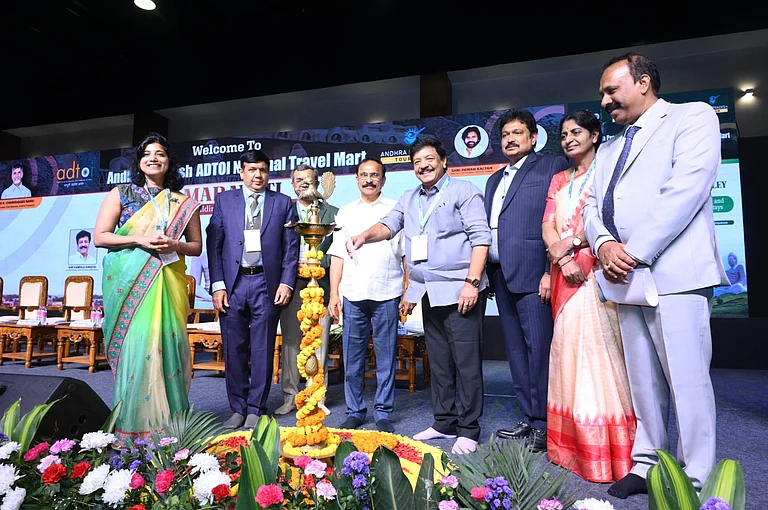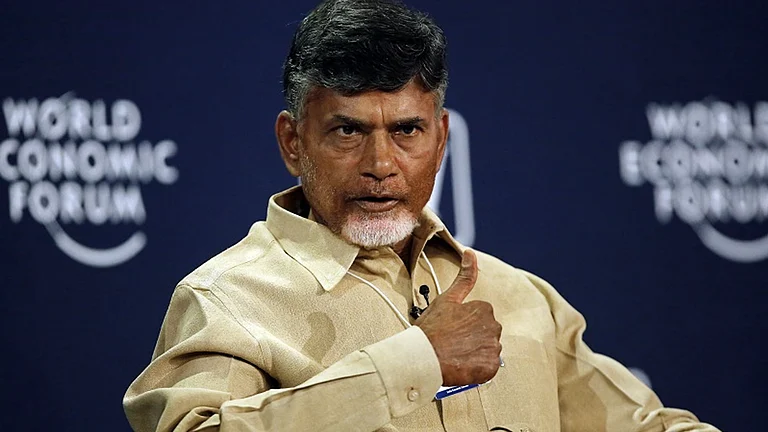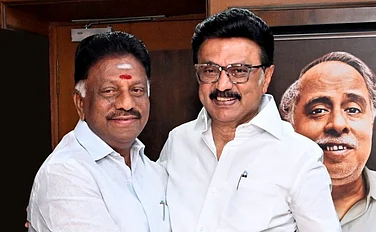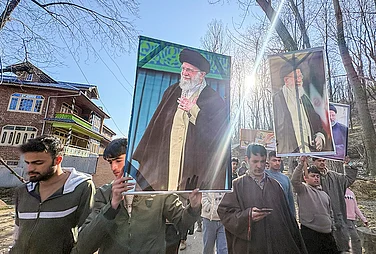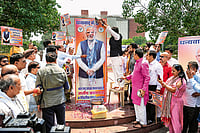The regional political parties, which came into existence at one point in time with the democratic aspirations of newly-emerging social groups, are entering into the trap of dynastic oligarchy. The residual Andhra Pradesh (AP) is the best illustration for the grip of three families over five political parties. In composite AP from 1956 to 2014, there were, at least, three phases in the electoral political process. The first phase was the single party domination of the Congress Party from 1956 to 1980s; the second phase was two party frays from 1980s to 2000; and, the third was the multi-party electoral contestation from 2000 to 2014. During all these phases of electoral politics, the dominant castes such as the Reddys of Congress and the Kammas of the Telugu Desam Party (TDP) were the main contenders for political power, and the Velamas and Kapus were second in the line. The two dominant castes such as the Reddys and the Kammas are the agrarian communities, marked by their feudal and capitalist character, ruled the state for 58 years.
The dominant castes rule has produced series of consequences, which include the social deficit of representation to different social categories, making elections as a costly affair, attacks on the Dalits, Hyderabad centric development, bifurcation of the state and the rise of dynastic oligarchies after the bifurcation of the state. There has been an increasing tendency of dynastic background family members in the electoral politics since 2014 onward in AP. In AP, the regional parties are the dominant players and national parties are either depending upon them or replaced by the local parties.
Since 2014 onwards, in AP, the provincial propertied castes-cum-classes like Kamma, Reddy and Kapus have been the rulers. These dominant social categories have been the maximum beneficiaries of the post-independent developmental initiatives such as infrastructure for irrigation to agriculture, rural development programmes, the Green Revolution and liberalisation of the economy. The surplus, which was derived from farming, has been invested in non-farm sectors like hotels, business, cinema halls, civil and arrack contracts, real estate, telecommunications, private transport, health, education and industries. The fabulous wealth, which was created from the diversified sources, have become a ventured capital in the politics of AP.
Against this background of the political economy―while challenging the Congress regime―the TDP has come into existence in 1980s under the leadership of prominent cine actor N. T. Rama Rao (NTR) with slogans like Telugu pride, and populist programmes. During more than four decades in composite and residual AP, the TDP has been in and off the seat of power. The two faces of the TDP, NTR and Chandrababu Naidu, represented two streams of developmental models such as welfare and neo-liberalisation, respectively. However, as president of the party and chief minister―and opposition party leadership in the hands of the Kamma of NTR―his son-in-law Naidu is apparently projecting his son, Nara Lokesh, as the successor of TDP. Naidu has been promoting him since 2014 onwards in the form of MLC-cum-minister for rural development and panchayati raj and from 2024 onwards, the minister for human resources. Lokesh is also the general secretary of the TDP and he is being projected as the next-in-command to Chief Minister Naidu.
Y. S. Jagan Mohan Reddy―while using the legacy of his father Y. S. Rajasekhar Reddy, the former chief minister of AP who died in a helicopter crash―floated YSR Congress Party (YSRCP) in 2011. He himself declared that he is the lifelong president of YSRCP. The president of state Bharatiya Janata Party (BJP) is Purandareswari, the daughter of NTR and sister-in-law of Naidu. The president of the Andhra Pradesh Congress Committee is Y. S. Sharmila, the daughter of Y. S. Rajasekhar Reddy and sister of Y. S. Jagan Mohan Reddy.
The Janasena Party (JSP) came into existence in 2014 under the leadership of cine stars Pawan Kalyan as president, and his brother, Nagababu, as the general secretary and Member of the Legislative Council (MLC). Both of them are brothers of cine actor and former politician, Konidela Chiranjeevi. Chiranjeevi had established the Praja Rajyam Party in 2008 and merged it with the Congress in 2014 as he got berth in the Union cabinet. Another prominent leader of the JSP is Nadella Manohar, who is the son of former chief minister Nadella Bhaskar Rao. The social profile of all these party chiefs indicate that they are from dominant castes like Kamma, Reddy and Kapu with dynastic family background.
For instance, Nandamuri Balakrishna of the ruling TDP is an MLA and the son of NTR and brother-in-law of Naidu, and he is the father-in-law of Lokesh. Sri Bharath, the second son-in-law of Balakrishna and Purandareswari is his sister. The civil aviation minister in the Union government, K. Ram Mohan Naidu, is the son of late K. Yerranaidu, the former Union minister. Yerranaidu’s brother, Achannaidu, is the agriculture minister in the Naidu’s cabinet. Byreddy Shabari, the MP from Nandyala, is the daughter of former MLA Byreddy Rajasekhar Reddy, whose father was also an MLA in 1960s and 1970s.
This trend has been existing among the lower caste political families as well. More than 50 per cent to-60 per cent are from the dynastic family background in the electoral politics of AP.
As a result of the dynastic politicians, the adverse impact on electoral politics of AP is in multiple ways. The dynasties always try to maintain the status quo rather than the social transformation in power through creating their own loyal henchmen in every ward and village. And then there are the middlemen who decide the beneficiaries of the welfare schemes, rather than the citizen themselves. The middlemen culture is also the result in the unethical practices, which is hampering the governance. The common man is scared of questioning the dynastic rulers for their basic entitlements or to contest in elections.
Evidence shows that if power is concentrated in the hands of a family, it would be not only be counterproductive, but they would also become a power centre. The questioning of such a dynastic authority is leading to the rise of violent politics rather than the democratisation of power relations. Before the 73rd Constitutional Amendment Act, 1992, from 1947 to 1992, the experience of local body elections indicates that for decades, only one or two families dictated the terms of the local power dynamics. The citizen was hardly aware of the functioning of the local governance institutions and most of the times, elections were not held. But the introduction of the 73rd Constitutional Amendment―and with the regular elections and reservations for the women and marginalised groups―has put an end to the dynastic politics in the local bodies of urban and rural areas. Now, even the agricultural labour is able to contest in the local body elections.
While taking into account more than three decades of local body politics and the democratic spirit of the Constitution, there is a need to introduce an act to restrict the dynastic dominance in politics in order to facilitate the common citizen to be a public representative.
(The author is with the Department of Political Science, University of Hyderabad)
(Views expressed are personal).








